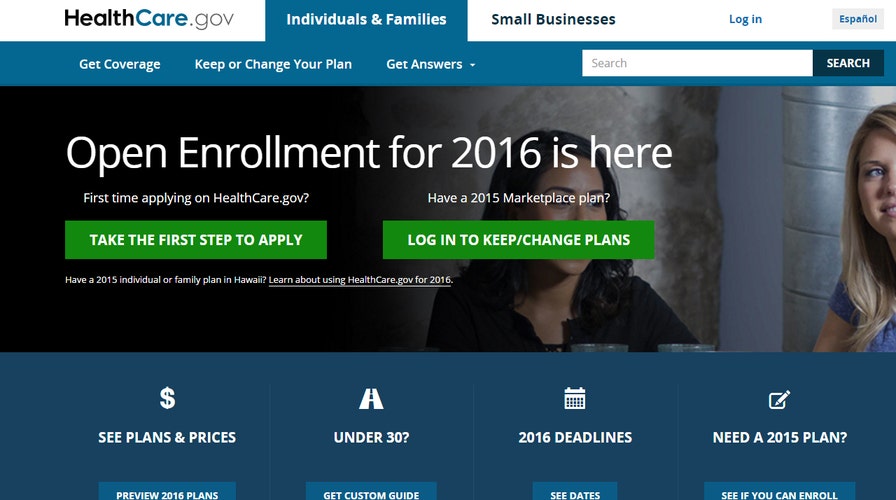Doctors are frustrated with ObamaCare
Strategy Room: Joe Lestingi and Rob Bonjean debate whether doctors struggle because patients aren't sure how the Affordable Care Act works
A top ObamaCare official was grilled Tuesday by lawmakers over federal funds given to states to set up their own health care exchanges, after many have been dogged by issues and others have closed up shop entirely.
Andy Slavitt, acting administrator of the Centers for Medicare and Medicaid Services, answered questions at a hearing of the House Committee on Energy and Commerce, and much of the focus was on states that used federal funds to establish a state exchange before transferring to the federal Healthcare.gov system.
State exchanges in Hawaii, Oregon and Nevada have all moved to Healthcare.gov -- now used by 38 states. The federal government spent around $5 billion to set up the state marketplaces.
Rep. Tim Murphy, R-Pa., asked Slavitt whether it was appropriate for state exchanges to transfer to HealthCare.gov after spending hundreds of millions of dollars of taxpayer money.
“Shouldn’t there be other consequences for that? They’ve failed but they’ve spent all this money then later said ‘gee sorry it didn’t work out.’ Does that seem appropriate?” Murphy asked.
Slavitt responded by saying that states have the right to change their minds and to move to the federal exchange, but if money had been misspent or the money is no longer needed, then CMS has the right to take money back.
Slavitt said that CMS had managed to recover money back from states such as Maryland, and has so far recovered $200 million from states. It has also denied a number of funding requests by states this year, he said.
“If we believe that there’s money that has been either improperly spent or money part of a grant that’s no longer needed we have every ability to collect that money and bring it back.”
Democrats on the committee blasted Republicans for what they saw as hampering the implementation of the Affordable Care Act.
“The majorities’ effort are simply designed to hamper implementation and undermine the Affordable Care Act regardless of the fact,” Rep. Frank Pallone, R-N.J., said, after saying that the uninsured rate fell to 9 percent.





